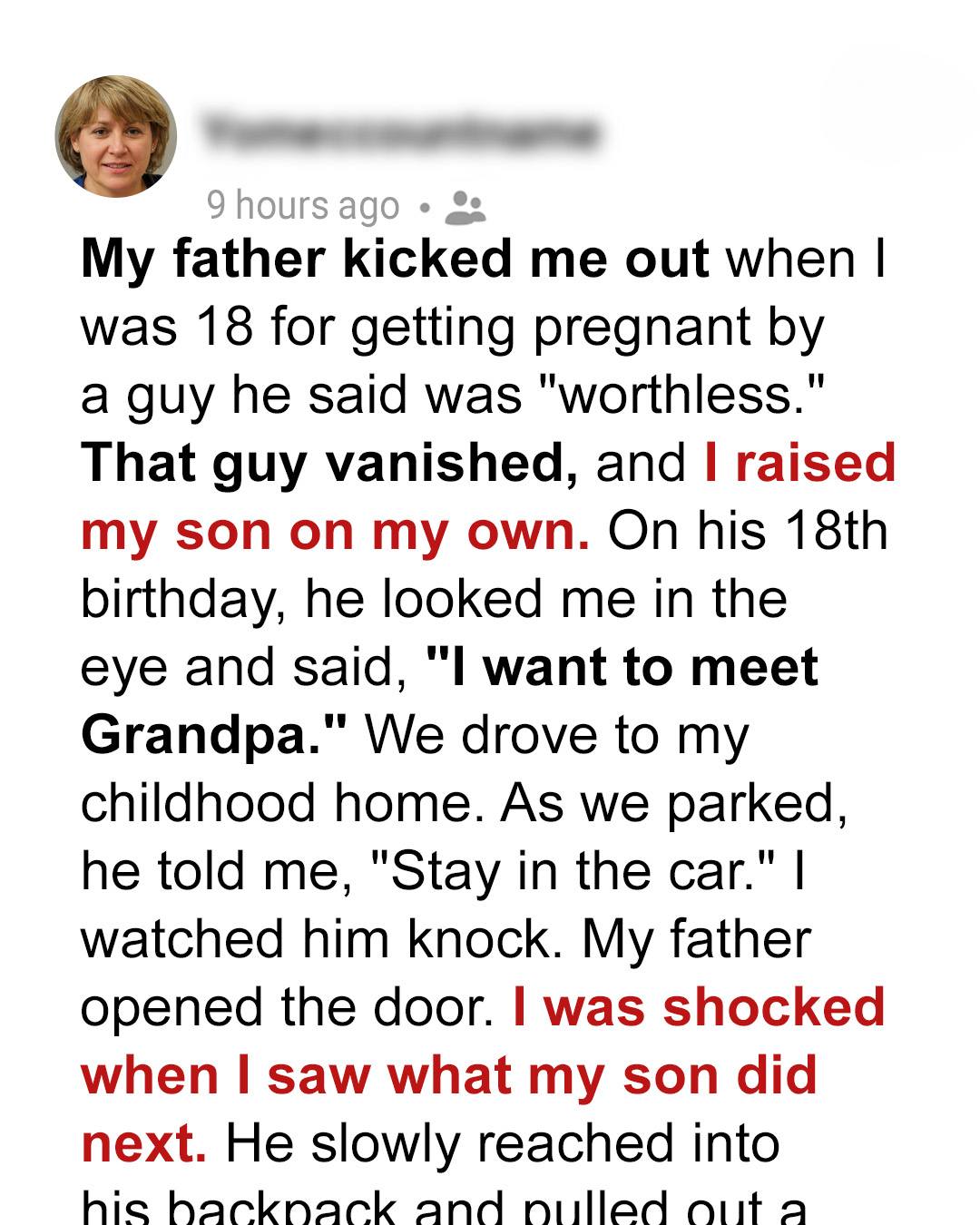I was only seventeen when my world collapsed. At an age when I needed guidance the most, my father turned his back on me. He was a man of strict rules, someone who believed that life had to be lived by his standards alone. When I came to him with news that I thought would bring us closer — news that I was going to be a mother — he didn’t offer comfort. Instead, he told me to leave, shutting the door on both me and the future grandchild he had yet to meet. From that day, I carried the heavy weight of rejection while struggling to find my own way.
The years that followed were filled with hardship, but also quiet victories. I worked long shifts at whatever jobs I could find, determined to give my son, Liam, a home built on love instead of resentment. He grew up watching me sacrifice, but instead of becoming bitter, he developed a fire of his own. By his teenage years, he was already working at a repair shop, saving every dollar and talking about one day owning his own business. Our little family had nothing fancy, but we had strength, laughter, and an unshakable bond.
On Liam’s 18th birthday, he made a decision that left me speechless: he wanted to meet the grandfather who had abandoned us. Together, we drove to the house I hadn’t dared approach in nearly two decades. When the door opened, my father froze at the sight of Liam — his features unmistakably familiar. My son handed him a small box and said, steady and calm, “I forgive you. But next time I come here, it will be as your competitor — and I’ll succeed, not out of anger, but because you forced us to stand on our own.”
Walking back to the car, Liam turned to me with words that pierced deeper than any wound from the past: “I forgave him. Now it’s your turn, Mom.” In that moment, I realized my son had grown into a man stronger than I had ever been — one who transformed pain into power, and abandonment into resilience. His courage gave me hope that even the deepest wounds can heal, and that our future would always be brighter than the shadows of our past.
